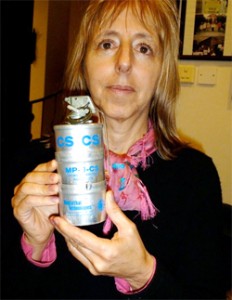On March 30, 2012, hundreds of demonstrations took place across the globe in commemoration of Palestinian Land Day. This important day in the history of the Palestinian people is a sorrowful reminder of the six Palestinians who were killed by Israeli forces in 1976 while protesting the continued confiscation of their land.
Generation after generation, Palestinians continue to call for an end to the brutal Israeli military occupation and the right to return to their lands. The continued ethnic cleansing of Palestinians from Jerusalem has resulted in a massive outcry and demonstrations worldwide.
Today people from around the world came together in a massive orchestrated effort known as the Global March to Jerusalem (GM2J), timed to coincide with Land Day. Marches took place in Palestine, Lebanon, Jordan, Egypt, Italy, Korea, all over the United States, and in many more locations. A peaceful movement, the Global March to Jerusalem is a people-powered action designed to assert the importance of Jerusalem politically, culturally, and religiously to the Palestinian people and humanity as a whole.
I had the privilege of participating in one of those protests in Amman, Jordan.This issue is of particular concern in Jordan because it has the world’s largest concentration of Palestinian refugees. Nearly 65 percent of the country’s population are of Palestinian origin.
Throughout the day, throngs of Jordanian Palestinians were joined by tens of thousands of Jordanian supporters, as well as those from around the world. Many came from as far away as Malaysia, Indonesia, Canada, Europe and the United States. We all came together, tens of thousands, on a dusty plain on the furthest end of the Jordan Valley overlooking occupied Palestine. We were a sea of peaceful protesters calling for a free Jerusalem for all and for a return of stolen Palestinian land.
Although we could all see the occupied territories, the Israelis would not let us cross the border. Hundreds of Jordanian police and military personnel, along with dozens of tanks and police cars, made sure the crowd stayed about a mile away. So close yet so far.
Groups of youth, not satisfied with being kept away from the border, tried to test the limits. They moved back and forth along the police lines, trying to find a way through. But the authorities would have none of it, and after many rounds of police pushing back and protesters running, the civil disobedience ended in peaceful chanting, singing and dancing.
The explosion of color in an otherwise amber hued surrounding was amazing. Waves of undulating flags, keffiyehs, balloons and kites filled the area. Many handmade signs claiming the injustices of 60 years of occupation abounded. Face painting was the mode of the day for the young children and teens. All this provided an almost celebratory background to an otherwise mournful event commemorating the ongoing suffering in the Palestinian people.
Palestinian dignitaries gave powerful speeches, and the organizers called on representatives from around the world to share their thoughts. The representatives from South Africa conjured up memories of the racist Apartheid system that Israel is mirroring today. Those from India spoke of the Ghandian peaceful protests to overthrow British rule, calling on the world to recognize this same form of civil disobedience, including the boycott, divestment and sanctions movement being used by the Palestinian civil society today.
But the speech that would spoke directly to me was the American, Michael Rabb. He reminded us about the similarities between the Palestinian struggle and the civil rights movement of the 60’s in our own country. He spoke of Martin Luther King, Mississippi and the long struggle to free a people who had long been promised justice only to be denied equal rights for over a hundred years.
As a representative from the United States, I gave interviews to the press and denounced the $3 billion dollars that the U.S. government sends to Israel every year to prop up its repressive military, while here at home our sick lack healthcare and our youth can’t afford a college education.
This is a day I will never forget. I was touched by the extraordinary power of a people in resistance for so many decades. One day, they will cross this border and enter a Free Jerusalem and a Free Palestine. I hope I can walk with them.
